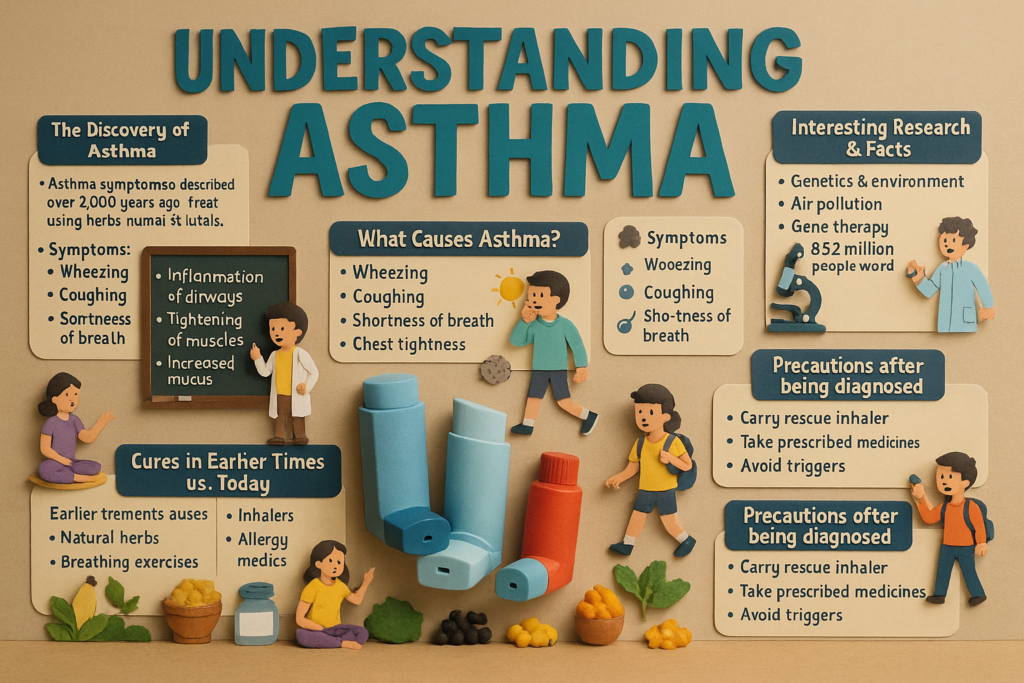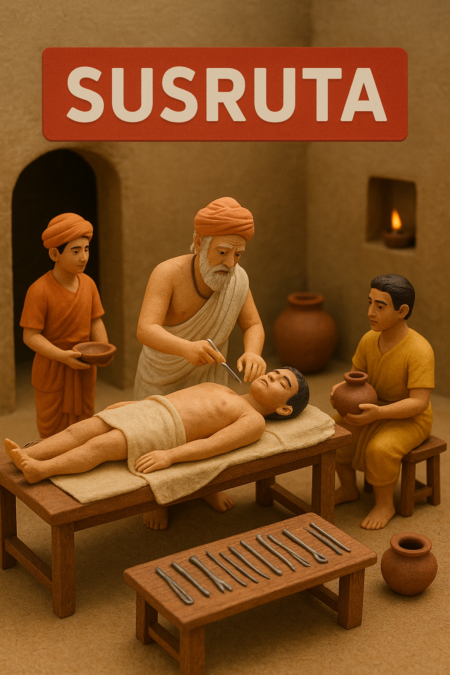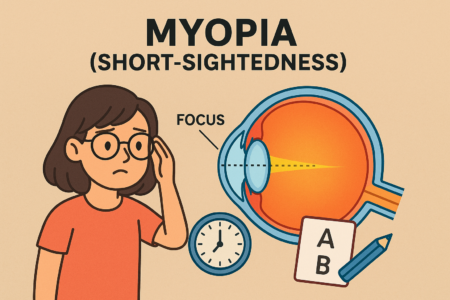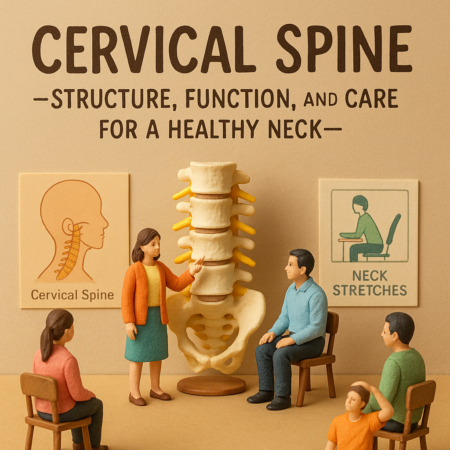Asthma is a common yet serious health condition that affects the lungs. It can make breathing difficult, especially during exercise, cold weather, or when exposed to dust and smoke. But how did asthma come to be understood, and how is it managed today? Let’s explore!
🧪 The Discovery of Asthma
Asthma isn’t a new disease. Its symptoms were described over 2,000 years ago in ancient Egyptian and Greek texts. The Greek physician Hippocrates is often credited with using the word “asthma,” which means “panting” or “short breath.”
In earlier times, people didn’t know the exact cause of asthma. It was often treated with herbs, steam inhalation, or even magic rituals. Ancient Chinese and Indian medicines used natural ingredients like ginger, turmeric, and black pepper to manage breathing problems.
🦠 What Causes Asthma?
Asthma is a chronic respiratory disease, which means it affects the lungs over a long period. Here’s what causes it:
- Inflammation of the airways (inside the lungs)
- Tightening of muscles around the airways
- Increased mucus production
These make the airways narrow, causing symptoms like:
- Wheezing
- Coughing
- Shortness of breath
- Chest tightness
Common Triggers:
- Dust, pollen, smoke, or pollution
- Cold air or sudden weather changes
- Exercise or strong emotions
- Pet dander or mold
- Certain foods or medications
💊 Cures in Earlier Times vs. Today
🌿 Earlier Times:
- Natural herbs like Tulsi, Ginger, and Licorice (Mulethi (मुलेठी))
- Breathing exercises and yoga
- Ayurvedic treatments using honey, turmeric, and ghee
- Steam inhalation with medicinal leaves
🧬 Modern-Day Treatments:
- Inhalers: Quick-relief (bronchodilators) and long-term (steroids)
- Nebulizers: Used for young children or severe attacks
- Allergy medications
- Immunotherapy: For long-term allergy control
- Smart inhalers: Connected to apps for asthma tracking
Today, asthma is not curable but manageable with regular treatment and lifestyle changes.

🛡️ Precautions to Prevent Asthma:
- Keep your room clean and dust-free
- Avoid secondhand smoke and polluted areas
- Wash hands regularly to avoid infections
- Use air purifiers if possible
- Stay away from pets if allergic
- Maintain a healthy diet and weight
🤒 Precautions After Being Diagnosed with Asthma:
- Always carry your rescue inhaler
- Take prescribed medicines on time
- Monitor your breathing using a peak flow meter
- Avoid asthma triggers
- Stay updated on vaccines, especially for flu and pneumonia
- Inform teachers and friends about your condition
🧠 Interesting Research & Facts about Asthma:
- Around 262 million people worldwide suffer from asthma.
- Genetics and environment both play a role in asthma.
- Studies show air pollution in cities increases asthma cases.
- Researchers are exploring gene therapy and nanotechnology to find better asthma treatments.
🦠 Asthma and COVID-19:
During the COVID-19 pandemic, people with asthma were advised to be extra cautious. While asthma doesn’t increase your chances of getting COVID-19, it can worsen symptoms if infected.
Precautions for asthma patients during COVID-19:
- Take all medications regularly
- Avoid crowded places
- Wear a mask
- Keep inhalers and emergency contacts handy
🎯 Conclusion: Take a Deep Breath and Stay Informed
Asthma can be scary, but with the right knowledge, precautions, and treatment, students and people of all ages can live full, active lives. Whether it’s through ancient Ayurvedic remedies or smart inhalers, asthma management has come a long way.
So breathe easy, stay alert, and remember: knowledge is your best defense!







